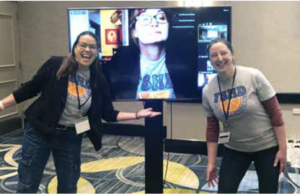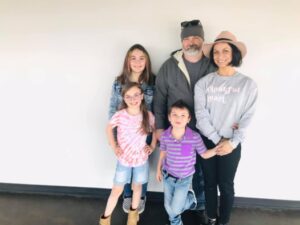For many people living with FSHD, the anxiety and stress of coping with disability, pain, fatigue, and interactions with others can be just as debilitating as the loss of muscle strength and function. People must deal with feelings of grief, anger, frustration, and hopelessness. FSHD takes a toll on mental health, but therapy, coaching, mindfulness, and other techniques can make a difference. Circumstances can't always be changed, but we can transform how we cope with them through knowledge, practice, and a community of support. Our "department of mental health" offers monthly Zoom meetings, webinars, articles, and resources to help you move toward greater well-being and happiness.
Resources to help you find a therapist
- American Counseling Association directory of therapists
- Rareminds for the UK, a mental health service for people with rare diseases
- Mindfulness resources from Jennifer Egert, PhD
- Innopsych - a searchable directory of therapists of color

No one should have to walk the FSHD journey alone and there can be great strength in shared experiences. Come to the Gathering Place - a collection of groups that bring together patients, family members, and friends who are walking similar paths.
Groups gather each month to share experiences, exchange ideas, offer support, and gain insights. Find the group - or groups - that appeal to you and fit where you are in your FSHD journey, then join the group and meet us online each month.
Mental health and wellness videos
Mental health and wellness blog posts
Ten things I wish someone had told me…
…when I was first diagnosed with FSHD (infantile onset) by Archer Sverdrup, St. Louis, Missouri Progression is unpredictable. Sometimes you may go a year with only minor progression. Sometimes every… Read More »
Connecting to others is essential to your health
Friendships are built intentionally by Gregg Lichtenstein, Margate City, New Jersey The 1970s band Three Dog Night proclaimed that “One is the loneliest number that you’ll ever do.” For all… Read More »
Shaking Qigong to relax your body
Here’s something to help you relax after the stress of the holidays. Our December 2023 meeting of the Feeling Fit group featured Qigong instruction by member Trish Kean. You… Read More »
Holistic approaches to fitness and wellbeing
When we invited people in the community to offer “exercise hacks,” one of those who stepped forward was Rita Lynn. Following her FSHD diagnosis, she went through a period of… Read More »









